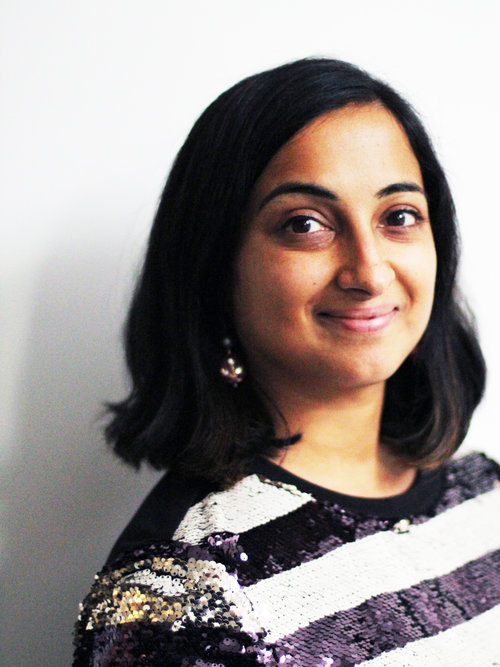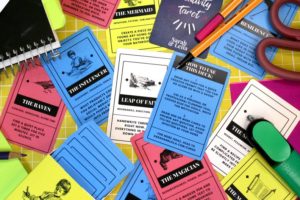
Anjali Ramachandran is a storytelling pro with a background in digital media, strategy and innovation. She’s a Director at the Brighton-based agency Storythings and an advocate for diversity, equality and inclusion. Anjali is kind of everywhere: you might have come across her from her global women in tech network Ada’s List, or her newsletter, Other Valleys, which looks at creative and tech-related news from emerging markets, or followed her amazing conference tweets over the years, or run into her at an event… She’s an excellent human all round, and we’ve been lucky enough to know her for a long time, so it’s great to have an excuse to interview her! We based this little chat around our organisation’s fundamental ‘three Cs’ – creativity, clarity and clairvoyance (i.e. the future!) Hope you enjoy it.
Anjali, you are a very positive and calming influence to talk (and work!) with. How do you keep going through these tough times with such energy and enthusiasm? Do you have any practical tips that might help others?
Thanks for your kind words! Not sure I’m always positive and calming but I try! These times have been unbelievably hard for a lot of people. The pandemic and witnessing friends and family affected by it in different ways is a lot to take on. Add to that trying to work, trying to manage caring responsibilities, even doing basic tasks like figuring out meals… just existing does feel like a task. And then I am just grateful that I am OK, even if I feel like I am languishing sometimes.
Meditation, when I can get myself to sit down for a few minutes and focus, helps. The one thing the pandemic hasn’t stopped in the UK at least is walks, and being in the fresh air is really invigorating. I also try and collect factoids and bits of information that are new to me (they may not be new to everyone). Tom Whitwell does his annual 52 Things I Learned This Year, so collecting bits of information like that is a nice way to focus on something other than all the bad news. And Spotify’s Discover Weekly is always nice to lose myself in at the end of the day.
As a hands-on Director at Storythings, how have you found managing other people’s creativity through all this? Have you noticed clients or freelancers working differently – any different attitudes or working habits?
First of all, the way people have adapted to Zoom is amazing and a bit scary, if I say so myself! Who would have thought that we would all spend SO MUCH time in front of a screen talking to little heads in windows?! I’ve noticed an array of backgrounds on Zoom as a way of people sometimes expressing their creativity. In terms of working habits, I’ve noticed people working at different hours of the day – I assume this is to manage around other responsibilities at home, as I do. I find many people prefer to switch video off, as constant video has proven to be a mental health hazard, unsurprisingly – and an environmental hazard.
What’s the secret to clear communication? Why do so many people love talking in jargon?
The secret to clear communication is knowing your subject matter like the back of your hand. If you understand what you’re speaking about, you can explain it in simple, easy-to-understand language. Conversely, if you don’t truly understand something, you tend to waffle on a bit. The reason so many people love talking in jargon, in my opinion, is because there’s so much information flowing across our screens and not everyone has the time, energy or mental space to delve into subjects in detail. As a result, they use complicated words they might have just come across to make it sound like they know something well. There are also people who probably believe that using big words makes them seem smart?! It’s an interesting conundrum of our times, where information can be an enemy.
Everything seems very uncertain and I know no one wants to make predictions. But if we forced you to (!) – how do you see your industry evolving in a post-covid world?
I think collaboration will become much more common and important. And the times we can meet people in person, which won’t necessarily be every day in an office anymore, will start to be more creatively, intelligently used. I think people will be more empathetic to what’s happening around the world, because if the pandemic has taught us anything it’s that we do not live on an island (even if we geographically do, sorry UK) because people and things move around all the time, sometimes with devastating consequences. And to end on a happier note, I think people will start seeing more of the good in others, which can make for some beautiful stories decades down the line.


